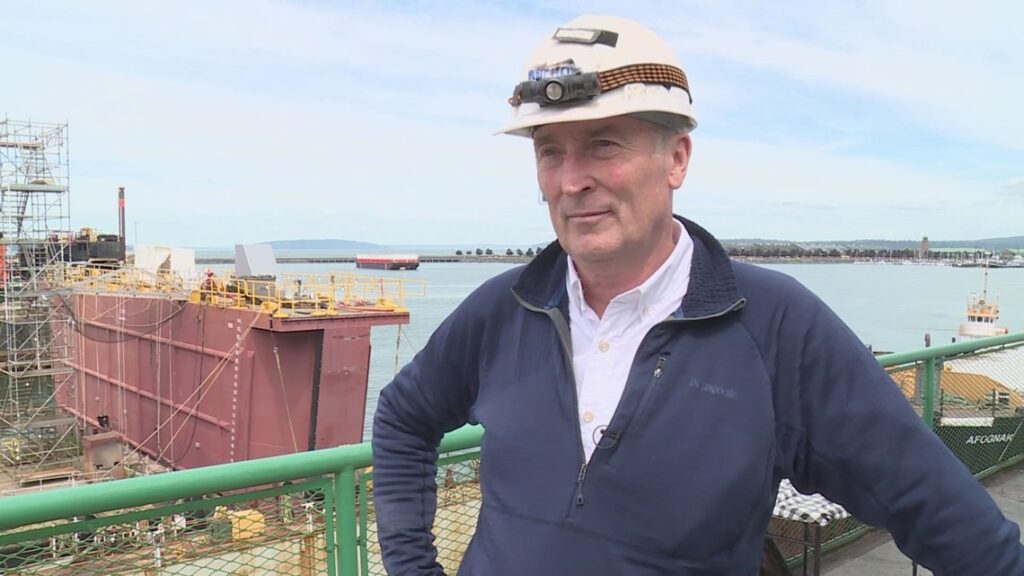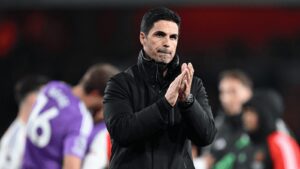
WHIDBEY ISLAND STATION, Wash. — A significant decision by Governor Bob Ferguson has sparked controversy in Washington’s maritime industry. A $714.5 million contract for new hybrid-electric ferries has been awarded to Eastern Shipbuilding Group, a Florida-based company, over local contender Nichols Brothers Boat Builders. This decision has raised concerns about missed economic opportunities for Washington state.
Nichols Brothers, headquartered on Whidbey Island, had proposed a plan that promised to create over 1,300 local jobs, enhance the state’s apprenticeship programs, and inject hundreds of millions into the local economy. The company expressed disappointment over losing the contract, emphasizing the potential for long-term skill development in the region. “It’s disappointing for us because it’s the loss of the opportunity to train the follow-on generation of shipbuilders that we desperately need,” said Gavin Higgins, CEO of Nichols Brothers.
Economic and Environmental Considerations
The decision by Gov. Ferguson was reportedly influenced by Eastern Shipbuilding’s bid, which was 6% lower than the state’s estimates, offering a perceived better value for taxpayers. The new ferries are designed to reduce emissions by up to 90% compared to older diesel models, serving essential routes such as Seattle to Bremerton and Mukilteo to Clinton. The first of these vessels is expected to be delivered in about five years, with the delivery schedule extended from 48 to 60 months.
Despite the environmental benefits, Higgins argued that Nichols Brothers was prepared to meet the original timeline and even suggested a collaborative approach where both companies could build ferries simultaneously. “We’ve had no communications with the governor’s office other than a phone call, yesterday to advise us that they were awarding it to the competitor,” Higgins stated.
Local Impact and Future Prospects
The loss of the contract has broader implications for Washington’s economy and workforce development. Nichols Brothers operates a state-approved apprenticeship program aimed at building long-term trade skills across Puget Sound. Losing the contract means missing a critical opportunity to expand this initiative.
Higgins also voiced concerns about the long-term maintenance and delivery logistics, pointing out the challenges posed by the Pacific Ocean’s harsh conditions. “The Pacific is a very unforgiving sea,” he noted, highlighting the complexities of transporting vessels via the Panama Canal. “The Pacific is a rough washing machine.”
Historical Context and Industry Reactions
This decision is not the first time Washington has faced such a dilemma. Historically, local industries have often competed with out-of-state firms for significant contracts, balancing cost efficiency with local economic benefits. The maritime industry, in particular, has seen similar debates over the years, reflecting broader challenges in regional economic planning.
Industry experts suggest that while cost savings are crucial, the long-term economic and social benefits of local contracts should not be underestimated. The potential for job creation and skill development could have lasting impacts on the state’s economy.
Looking Ahead
As Nichols Brothers pivots to pursue other projects, such as high-speed aluminum ferries, the company remains committed to its workforce and local community. The broader implications of this decision will likely continue to be a topic of discussion among policymakers and industry leaders in Washington.
Meanwhile, the state will monitor the progress of Eastern Shipbuilding Group’s contract, assessing the environmental and economic outcomes of this significant investment. The decision underscores the ongoing tension between immediate fiscal savings and long-term economic development, a balancing act that will continue to shape Washington’s future.







